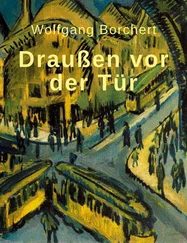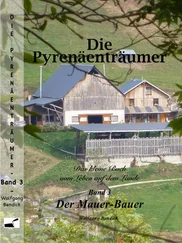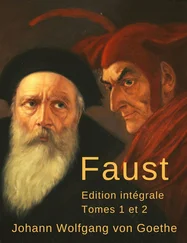Besides — this followed inevitably from the preceding thoughts — the West had absolutely no independent opinion on literature; it was completely at the mercy of the weather conditions that blew in from the East. The very fact that the West constantly compared literature with climatic conditions was enough to prove this. . first the West absorbed the climate, then passed it off as its own. . thus attempting to co-opt the East retroactively. — There wasn’t a soul in the West — with a few inconspicuous exceptions — who didn’t docilely parrot what were ultimately the MSS’s (or the KGB’s) verdicts on literary quality. It had been one of our best gambits to couple literature ‘bearing a predominantly pessimistic, non-socialist message’ (as we described Unofficial Literature) with the attribute ‘inferior literary quality’; and the Western lit crit mummies bought this verdict. . of course they had no other choice, for their official discourse concerned official literature, that is, the one we served to them, preselected and preformed.
My thoughts returned to my scheme: if I let Feuerbach in on these plans, I could spare myself many a delay. . after all, I was one of the oldest writers in UnLit, I didn’t want to go barking up the wrong tree many more times. The Major would know without fail whom to approach, and how (and if not, there were experts for that too). But I had no idea how far I’d have to subordinate myself in that case. . completely, in all likelihood! He would undoubtedly demand that I first submit my magazine pieces to him (or the expert). At what point here, I asked myself, would I cease to be the author of my own work?
(These were thoughts he’d pursued in all sorts of places: in the S-Bahn train, in the cafe on Frankfurter Allee, on his wanderings through the streets by day and by night. . and beneath the public paths of these streets, and on his produce crate by the concrete wall in the basement. The conclusions drawn from these thoughts shifted noticeably with the location: up in the daylight — if you could call it that, this grey, smoky, rainy Berlin spring — he tended more towards subordinating himself and having his work reviewed, assuming he could scrape it together. Back at his place in the basement his thoughts were more rebellious, and he seemed intent to implement his scheme entirely on his own. . as though such options weren’t long since a thing of the past.
C. marvelled, incidentally, at the anxiety with which this character mulled over his literary fate. — Hadn’t he written enough, weren’t both his desks — up in the flat and in the room out at his landlady’s — covered with scribbled paper? Notes, outlines, jotting paper filled with deletions. . later they’d been transformed into fair copies, and sometimes he’d even made carbon copies, though this by no means conformed. . was not allowed. . was practically strictly forbidden. The question was short and to the point: Why shouldn’t parts of these reports be slipped into the pieces meant for the magazines?
First they’d have to be slightly defamiliarized . . if they weren’t sufficiently defamiliarized already. . and they could easily pass as ‘fragments’, as protocols of consciousness ‘without closure’. Then he’d have to exclude the Major from the scheme, though. — After all, thought C., we also do nothing but record forms of consciousness. . and archive them. Deformations of consciousness as they manifest themselves. . and perhaps only once we’ve elicited them. . and turn visible, these brief movements of the lower face. And why in fact shouldn’t the Major know about all this?)
At some point I was actually prepared to explain my idea to the first lieutenant, at least cautiously; maybe he’d manage to show some understanding when I told him I’d have to be given a largely free hand. The advantages for him were not to be sneezed at: I was bound to provide him with a number of contacts he’d previously pursued in vain, namely, the connections between the Berlin Scene and similar groups in the south of the country. . and one of the advantages for me was: if I had things to do there, I’d find an opportunity to visit the town of A. again. .
But it suddenly proved difficult to find the first lieutenant — in my experience this always happened when he was sore at me for some reason. I ran after him and he ran after me. . as a rule he managed to fix the game of hide-and-seek in such a way that I was stuck being the one who’d disappeared, the one who was never around when needed. And so it was in this case: I emerged from the basement ashen-faced. . no wonder, in this May weather; it was rainy and cold, the rain washed filth from all the walls, the smoke forced down between the buildings by the constant rainfall covered the facades with filth again, the rain washed it down. . I went into the cafe; the waiter had kept himself alive for hours just for me, just to attest that the good-looking blond man with the silver-grey forelock had sat at my usual table for twenty minutes on the lookout for me. . the game began, a game Feuerbach would play until his wrath was spent (and I was exhausted. . this time I didn’t need his help for that), or until a different problem took precedence. — I was exhausted because my reluctance to meet him in my flat complicated things; he would immediately have demanded to see the texts which I didn’t even have yet. — My preparation had been miserable, I didn’t even have some sort of strategy to follow. . and I could already picture his responses: What’s that you’re saying? First a whole series of poems in the non-official magazines? That’s an idea, anyway, a good one even. And then use that to approach editors in the West? But for that you at least need a contact person ! You were thinking of that kid from West Berlin who’s always running after Reader? You haven’t even managed to find out her name. .
Why, then, was I searching for Feuerbach and catching my death on the cold streets. . and why was I avoiding him? All I had to do was wait for him up in the flat. . time and again, when I reached my street, I saw light burning up in the windows.
The light! For days a crazy game had gone on with this light. I’d first seen it burning the time I returned to my flat after my stay at Frau Falbe’s. I’d probably already caught a cold that evening, sitting around on the square outside the S-Bahn station, when I’d intercepted the outsized ‘probationer’ from A. and, by dint of my great power (I was Sect. 20), sent him back to the provinces. I was convinced that Feuerbach’s training course was over. . when I reached my street I could have sworn that he was upstairs standing at my desk. . and I cursed the drawbacks of a rent-free flat. Knowing him, he was standing in the middle of the room up there, he never sat down, as though my chairs were contaminated; he had a good nose for my sensitivities and knew how nervous it made me when he talked away at me standing up. I had immediately vanished into the basement and waited there till nightfall; after several hours had passed I went up to turn out the light and sleep; I slept very badly, waking up every few hours bathed in sweat, believing Feuerbach had come in and was rummaging at my desk. The next day I’d gone back to Frau Falbe (and could have sworn the light was out when I went), had her mix me a good stiff grog, and tried to get a few more hours of sleep. When I went back into town that evening, the light was on again in my flat. I went up (trembling with rage or fear. . still sick with that cold, I told myself) to confront him; he wasn’t there. Then I slept (real sleep at last) with the lights turned on all night so he’d think I hadn’t come yet. . in the morning I left the house as early as possible, leaving the light on, or at least I could have sworn it was on when I left. And when I came back in the evening, the burning light offered no guarantee that he wasn ’ t in my flat waiting for me. . I extinguished the light and slept in the dark room, restless and flu-ridden, to decoy him. Towards midnight I woke up drenched with sweat and looked at the clock; the clock had stopped. . by two I still hadn’t got back to sleep, I thought I heard the noise of the front door scraping hideously across the sandy tiles, quite audible when the window was open. . it had to be around two because the cafe on Frankfurter generally hosted over an hour of dice games, behind closed doors, something which otherwise wasn’t allowed. . they were played for high stakes, and made the waiter and the barman perk up. — I dressed lightning-fast and headed down to the basement at the risk of running into him on the stairs. Hours later, back upstairs, the light was burning, but I could have sworn I’d extinguished it, after vainly consulting my watch. — I slept at Frau Falbe’s again, riding out the S-Bahn trip with chattering teeth, filled with an exhaustion I hadn’t known even when I still had a job, and if there was anyone who hadn’t noticed me, they’d noticed me now, I told myself. I finished Frau Falbe’s coffee and all her supplies of painkillers and cold medicine. . when I returned to my company flat that evening (and saw the light burning from the street), I was dead set on giving Feuerbach a thrashing if I met him coming down the stairs. . which didn’t happen, I went back to Frau Falbe’s, where I concluded that I’d merely imagined having been in my flat.
Читать дальше












